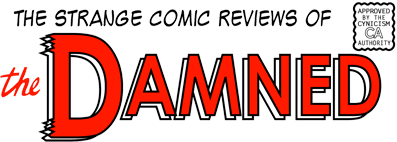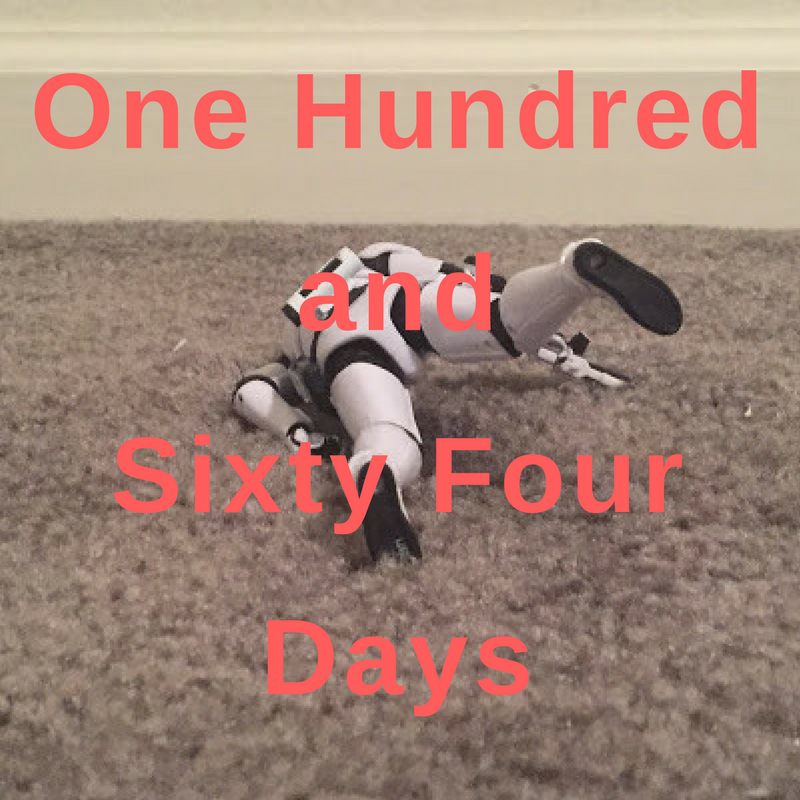Notes on a Missing Mystery
In my long association with that friend and colleague who has so often been the subject of these modest bulletins, I have seen many things which I would perhaps, in a younger life, have deemed impossible. There is nothing stranger, or more ingenious, than the hideous depths of the human mind in the throes of criminal perfidy.
With that said, I am also continually amazed by the great detective’s ability to remain nonplussed in the face of this very same capacity for evil. Not only evil, perhaps, but also the extremely profound disassociation that exists between the exigencies of the improbable and the impossible. How many times have I been stunned into silence by a seemingly freakish turn of events, only to have him smile slightly and explain the physics of the event as an occurrence of the sheerest, most uncomplicated simplicity?
Many of our adventures will never be recorded, either because of still-vulnerable circumstances requiring our discretion, or on account of their singularly disinteresting nature. There have been many cases which seemed interesting on the outset, but which soon resolved themselves in most a disappointingly banal fashion. There have also been many, many more cases where Holmes and myself played secondary or even tertiary roles: cases in which my friend was called in for a cursory consultation or corroboration. Sherlock Holmes does not possess many true peers, but there are many who would seek to pick his brain for the purposes of their own cases, and in most of these instances Holmes is loath to turn away an honestly beseeching comrade in arms.
The incident which I am about to relate is therefore of little interest on the basis of our limited involvement, but for the peculiar circumstances surrounding a particularly bizarre consultation on fine May afternoon, during the years following Holmes’ presumed demise and preceding his eventual retirement. It was a clear day, and there were no clouds to be seen anywhere as the evening made its lazy approach.
I digress into the weather in the interest of including two important details which serve to punctuate this brief incident in my remembrances. In the middle of the afternoon, despite the clear skies and clear lack of any storm activity either overhead or on the horizon, there were two enormous thunderclaps, both deafeningly loud, loud enough to mark them in a very close proximity to our Baker street apartments. I recall very clearly my momentary bafflement at these strange noises, but I also remember Holmes’ perking up immediately following the first explosion. He had been in his customary doldrums following the conclusion of his latest caper, and, as was his unfortunate custom, was lounging around our rooms in his robe and slippers, with almost the expression of a hound-dog at times. So great is the effort required of his mind for cogitation during the course of his exertions that the lull between adventures can sometimes seem infinitely depressing. His frequent usage of distasteful stimulants such as cocaine during this slack periods serves, to my mind, as further proof of the greatness of his ability: so great were his mental faculties that their forced disuse caused him a sensation almost kin to physical pain.
But in any event, his demeanor improved greatly after he heard the first of those horrendous thunderclaps. Although I expressed my puzzlement as to why we should be visited with thunder and lightning on a clear day, Holmes assured me that the explosion, while strikingly similar in volume to a natural thunderclap – certainly enough so to fool a lay person such as myself - was actually a decidedly unnatural phenomenon, and one with which he was passing familiar. He refused, for the moment, to elaborate further on this mystery, and instead instructed me to inform Mrs. Hudson, our housekeeper, that we would soon be receiving guests, and that we would appreciate some tea.
Sure enough, just a few moments after Holmes had risen from his sofa and struck a match in his pipe, the doorbell rang and two uniquely strange visitors were ushered into our apartments. I had never seen them before, although my friend assured me that he had made their acquaintance a few years earlier, during a prolonged escapade wherein the crowned heads of Europe were collectively threatened by our old foe Professor Moriarty and another remarkable villain, a Mr. Vandal Savage. This is one of those aforementioned adventures which, I fear, I will never be able to record in detail for public digestion, for the reason of a number of extremely sensitive subjects pertaining to the machinations of this particularl escapade.
I had personally served on the periphery of that hoary campaign, and had never the pleasure of encountering these two gentlemen. They were both American, and dressed conservatively, in dark colors. The first was almost shockingly handsome, with short black hair and a broad, muscular frame. He carried himself with a quiet, commanding reserve. The second man deferred slightly to the first, and one sensed very distinctly that despite the fact that they were ostensible partners in this endeavor, the darker one was accustomed to command. The second one, while less obviously muscular, was no less imposing, in his own way. He had a shock of bright red hair and an almost preternaturally long nose. His mood seemed lighter than that of his companion, despite the fact that, as he and his friend explained, he had been through a rough patch the previous few weeks.
The matter which they had come to consult my friend upon had actually began with the death of the second visitor’s wife. I subsequently learned that both gentlemen were in fact detectives themselves, and had apparently had many long and colorful adventures in their native land. I inquired, in the course of the conversation, why I had never heard of either of these gentlemen, if – as I surmised – they were detectives of such obvious merit. The first one would merely answer, by way of a cryptically terse response, that he and his companion hailed from an extremely distant quarter. It is not often that Holmes encounters a detecting acumen anywhere near his own, so the great respect he ceded towards these gentlemen did not fail to impress me; but I maintain that I did not like that dark fellow, with his damnably cryptic responses. Holmes may be terse and short-tempered, on occasion, but he is never, in my experience, needlessly condescending.
The second visitor seemed far more approachable, if still shadowed by grief. He was prone to juvenile wisecracks, even in his reduced state, I suspect as a means of allaying the tension native to his profession. Also, I must make another note of the fact that he possessed the most unique nose I have ever seen. I would almost swear that during our short conversation I had seen it wiggle, imperceptibly, as if it had been an artificial appendage made of India rubber.
The case on which they consulted my friend seemed simple enough in principle, if devilishly ticklish in the details. The case began with the murder of the second detectives wife, after which their whole society had been pulled into a morass of questioned loyalties and increasingly complicated circumstances (I learned, incidentally, that these two gentlemen were actually members of a secret league of like-minded law-enforcers). Old, long-closed cases were called into doubt, old wounds between the long-time comrades had been reopened, and an almost infinitely wide series of complications subsequently arose. I will confess that I understood little of their conversation, although Holmes absorbed their details with no little fascination. There were many people mentioned with whom I was not familiar, and many situations described which seemed frankly impossible on the face of them. But again, the stride with which Holmes accepted their story caused me to stifle my doubts and simply try to follow the thread of the narrative for as long as I could.
Finally, they finished their story and presented the case to my friend for his opinion. The adventure had ended on an unsatisfactory note after it had been supposedly discovered that the wife of another of their comrades, a Mrs. Loring, had organized the initial murder as a way of winning back her estranged husband. Holmes openly scoffed at this explanation, expressing a dissatisfaction with such a roundly pat conclusion which the visitors obviously shared. While it became obvious over the course of our conversation that there were also buried resentments between our two visitors, they were both primarily motivated by a pure desire to solve the mystery, and glad to see Holmes come ot the conclusion which they clearly shared.
“On the face of the facts as you have presented them”, Holmes began after a long moment of deep contemplation, “this case is not yet concluded. While certain superficial clues could circumstantially point to Mrs. Loring as the murderer, there are too many other factors involved for us to accept this as a reasonable answer. No, this seems to be a very concise case of redirection, but without further input I am afraid I will be of little use to you.
“As it stands, this case is almost singularly strange in the seemingly random way that so many of your previous cases were dredged up by the events, almost as if someone had
designed the
entire event merely as a means of fueling conflict between the members of your league. I fear that I can only conclude that Mrs. Loring is a patsy, and that someone else, someone with a dark grudge, must have organized these events with foreknowledge of the consequences.
“If this were a mystery story in one of those dire magazines that Watson follows, I would say that this was a spectacularly poor piece of plotting, with a badly-concocted "twist" at the end designed merely to stymie the readership’s expectations for a sensible and competently-executed piece of crime fiction. There are merely too many coincidences, too many loose-ends left over, for you to consider this case anywhere near concluded. In order for any of these events to make sense – and they
must make sense – it remains for you to tease out the common thread between these disparate occurrences.”
Our visitors nodded their assent. The first one - the dark, unpleasant fellow - voiced his opinion that he had suspected as much all along, but wished to consult with
"the one expert whose opinion he valued above his own" before continuing further with his investigations. The second detective did not seem particularly surprised by Holmes’ verdict either, but his visible dread at having to undergo further investigations in the matter of his wife’s demise left him visibly shaken – and, I should note, his strangely elongated nose seemed to visibly shake as well.
They exchanged brief pleasantries with Holmes and myself before they left. After the door was closed Holmes seemed uncharacteristically taciturn. In a few more moments after our visitors left, there was another large booming thunderclap, strangely identical in sound and volume to the noise that had proceeded our visitors’ arrival just an hour or so previous. The sky was still clear.
“They are gone now, Watson”, he sighed, clearly relieved. “You can rest assured of that.” He walked to his sofa and resumed his previous, indolent pose.
“There are many things I don’t quite understand, Holmes.”
“Of this”, he said slyly, “I am certain. But what about this case particularly troubles you?”
“Well, if they were really so "stumped", why didn’t you offer to accompany them back to America in order to help them? You could be on a steam vessel for America by the morning if you wished.”
“I would have to go a lot further than America to help them with their mystery”, my friend answered. “And that is something, I am afraid, I have no wish to do. When we met before, in Europe, the offer was tendered for me to return with them, but I declined. There are some things which, even in the face of high improbability, I still wish to regard as impossible.”
With that he sank back into his previous malaise, and I was left alone with my thoughts.

(PS - The new remix is up
here.)





























